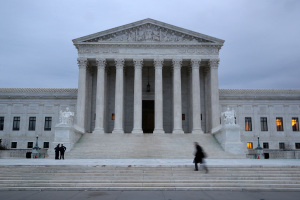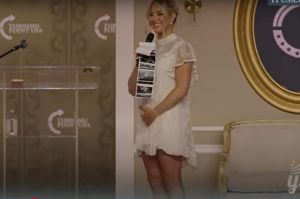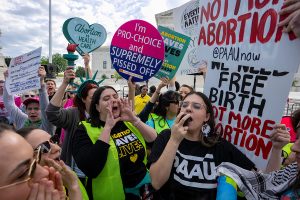Lutheran Head Rejects Claims of Scripture Abandonment
The head of the Evangelical Lutheran Church in America returned to Web stage on Sunday to take questions from a divided denomination.
Much like at the first online town hall forum in December, many of the questions at Sunday's live event focused on the recent legislative decision to allow practicing homosexuals to be ordained.
"As I presided over that churchwide assembly in August 2009, my call was not to manipulate, or advocate or intimidate. It was to make sure that this assembly was in a context of worship and prayer and holy conversations and thoughtful deliberations and decision making," said ELCA Presiding Bishop Mark S. Hanson in response to a question submitted on the Web.
The controversial decision last August during ELCA's triennial gathering has forced a number of congregations to split or whole ones to leave the denomination in favor of a body that hasn't been formed yet. That body will be called the North American Lutheran Church and is currently in the works to serve as a home for those who believe the ELCA is moving away from traditional Christian teachings.
Zach Thompson, associate pastor of Shepherd of the Valley in Afton, Minn., said in an online question submitted to the town hall forum that he felt betrayed by leadership "who actively advocated to push through an agenda that lacks any consensus in the wider church."
But Hanson didn't agree with Thompson's perspective.
"My experience of leaders in this church from 2001 when the assembly called for this discussion and the formation of a social statement on human sexuality is that leaders throughout this church ... have sought to be very faithful to the task given us to create a social statement but to make sure the creation of that statement was a participatory process for eight years, it was respectful of differences that are even acknowledged in the text of the social statement itself and that this would be a process of discernment, engaging Scripture, engaging the tradition, engaging our context for mission and always listening for God's voice, listening to our context of ministry, listening to one another," Hanson said.
"Unlike your description of what you've experienced," Hanson said addressing Thompson on camera, "mine is quite different and mine is quite broad as I travel throughout this whole church and its many contexts."
In addition to opening ordination to partnered gays and lesbians last year, ELCA delegates had also adopted its first social statement on human sexuality. The document addresses social structures, trust in relationships, cohabitation, sexual exploitation, abuse, and homosexuality, the latter of which has drawn the most attention and controversy.
The statement acknowledges that there is neither a consensus nor an emerging one in the denomination on homosexuality and at the same time recommends that the ELCA commit itself to finding ways to recognize lifelong, monogamous, same-gender relationships.
Hanson on Sunday called divided congregations to pause and take time for "deeper engagement with the Scriptures" before deciding on actions of disaffiliation or division.
While conservative Lutherans have accused the ELCA of departing from Scripture, Hanson argued that the church upholds the authority of Scripture.
"I begin from the premise not that some in this church are being faithful to the authority of Scripture and others have forsaken it," he said. "I believe that as a church we uphold the authority of Scripture as authoritative for our faith and our life and our witness and it is under the Scriptures that we hear and interpret those Scriptures speaking to us.
"I think it's more a matter of God being heard differently spoken through Scripture and how it's being interpreted into the context of our lives than some following Scripture and others forsaking Scripture."
He added, "It would be a very different conversation if we started from the premise that we all live in the Word of God that dwells richly in us and are seeking prayerfully to hear God speaking to questions out of our context that weren't always the questions that were being asked of the biblical writers in their context."
In other matters, Hanson updated the denomination on progress regarding the push to diversify the predominantly white body. Three years ago, the denomination was called to increase ethnic membership to at least 10 percent. However, the diversity remains unchanged with still 97 percent of the ELCA white.
"There are questions about mission that should create deep agitation in this church," Hanson challenged. "Sometimes I wish we were as agitated over our inability to be a missional church in an increasingly pluralistic context as we are agitated about human sexuality."
The ELCA head also reported on ecumenical relationships with groups such as the Roman Catholic Church, with whom they are continuing dialogue with. Hanson recently returned from an ecumenical journey in which he met with the leaders of the Anglican Communion and the Eastern Orthodox Communion, and the pope.
"I am so appreciative," he said, "that the ELCA early in our formation 1991 made a statement of commitment on ecumenism that said we will not be just about the future of the Evangelical Lutheran Church in America because our future depends upon us always being committed to finding concrete ways to make visible the unity God gives us in Christ with all other Christians."
The online town hall forum drew more than 2,296 visitors.





























